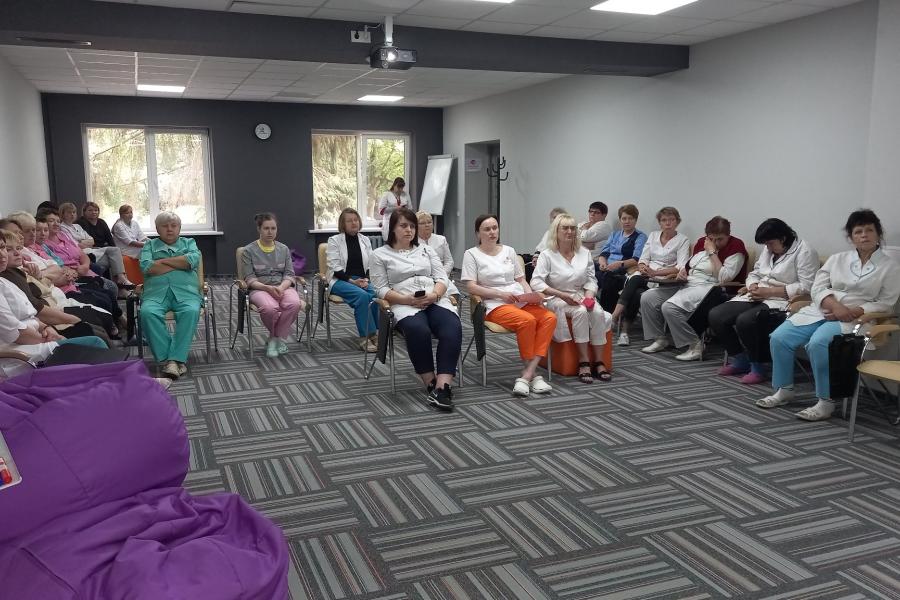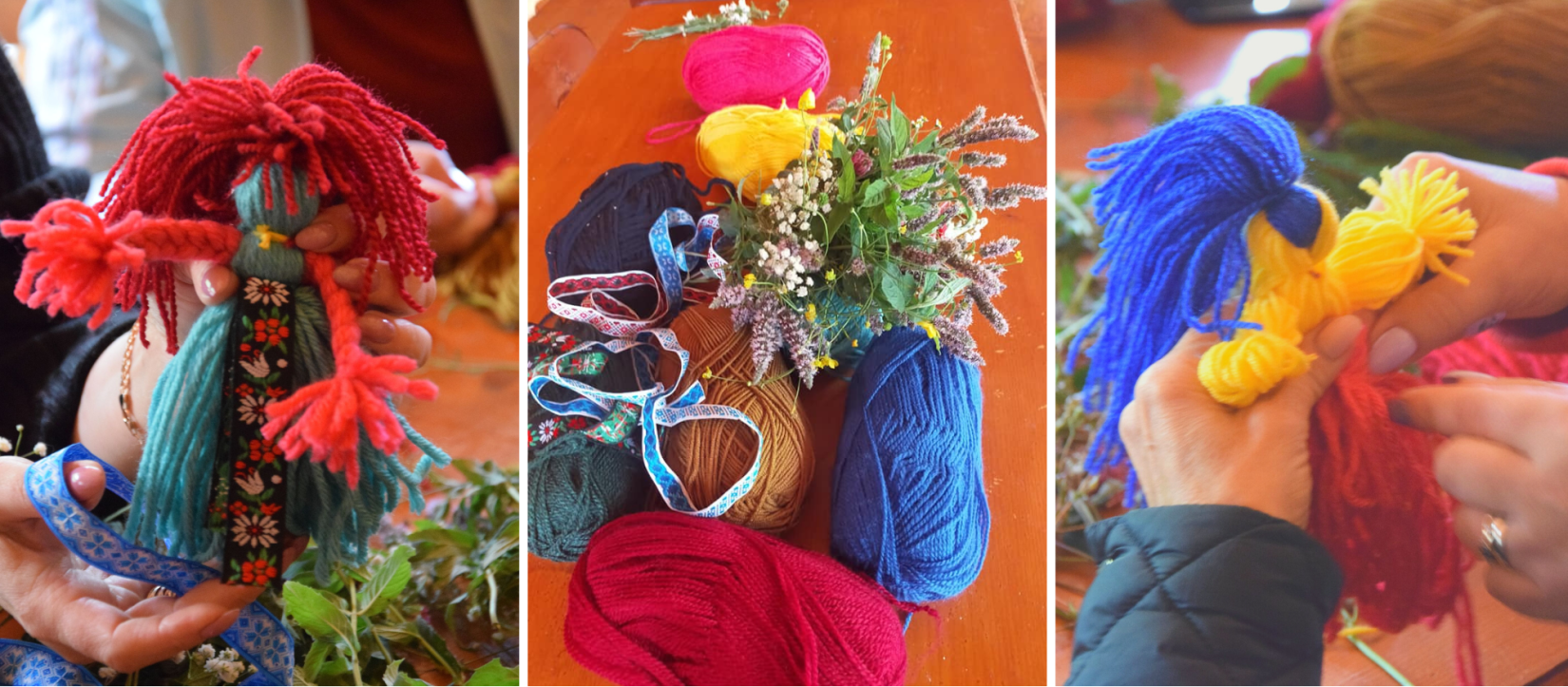Story of Nataliya who helps torture survivors, civilians who were injured and family members of those killed

On International Women’s Day, we introduce Nataliya.
She is one of countless Ukrainian women who have been helping others, men and women alike, deal with horrific consequences of the gross human rights violations that Ukraine has experienced over the past year.
Nataliya Melnyk had been working with survivors of torture even before the full-scale armed attack by the Russian Federation on Ukraine started in February 2022, but she says that since then, the number of people who turn for help has increased 100-fold. So, she began to provide support to civilians who were wounded and family members of dead civilians. She is the coordinator of projects and programs at Blue Bird, a local non-governmental organization staffed almost entirely by women that aids torture survivors. The 45-year-old notes that her organization has already doubled its staff, but even if they had five times as many people it would still not be enough to tackle the soaring needs. So they decided to enlist the help of others.
“Now we train a lot of medical workers, social workers, and psychologists, we pass on our experience so that as many people as possible can get help,” she says, noting that the people her organization helps include survivors of torture, and families of those who have disappeared or been killed in attacks on civilian targets. Blue Bird is also going to train journalists, she adds, who often do not know how to speak to victims of human rights violations without causing more trauma.

Nataliya says ninety percent of beneficiaries of the NGO are former prisoners of war or civilians who have been held in captivity. They need everything, she says, ranging from legal and psychological assistance, to social support, medical treatment, access to medicines, hospital treatment or rehabilitation facilities.
But Nataliya notes that some victims of torture never come for help as they think that what happened to them pales in comparison with Ukraine’s ordeal.
“They never report to the police because they believe that the fact that they were held and beaten for two or three days is not so terrible, that the country is busy with more urgent things, and that it is necessary to help those who suffered more,” she says. But she cautions that failing to report abuse potentially deprives the victims of future justice and makes it harder to enforce accountability.
She argues that some survivors may not regard their experience as sufficiently traumatic but they are also at risk of serious psychological and physical consequences from what they experienced.

She explains that the reluctance of some to come forward sometimes makes it difficult to assess the real number of torture survivors.
Asked whether she derives pride from her work, Natalyia says what makes her particularly proud is that she and her colleagues were able to help others even though they were in extremely difficult situations themselves.
“We ourselves were forced to leave for a certain time, became internally displaced persons, without clothes, without usual household items and sat in basements during shelling, but even hiding in subway stations, our psychologists still provided people with psychological help,” she recalls.
Nataliya’s story is just one of many women who have been committed to documenting human rights violations and tackling their severe consequences. On this day — International Women’s Day —- we wanted to recognize the crucial role played by women human rights defenders in advancing multiple human rights in Ukraine.



